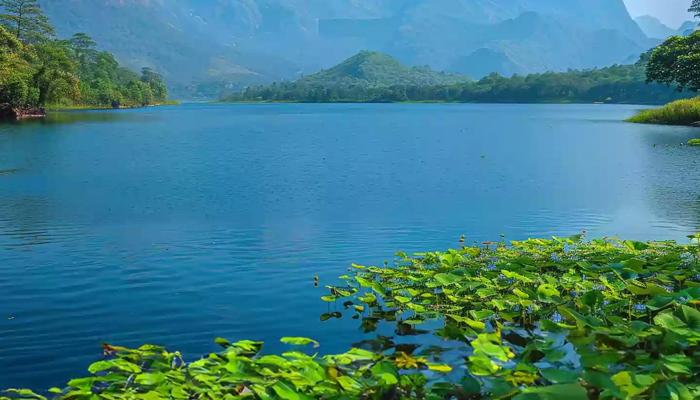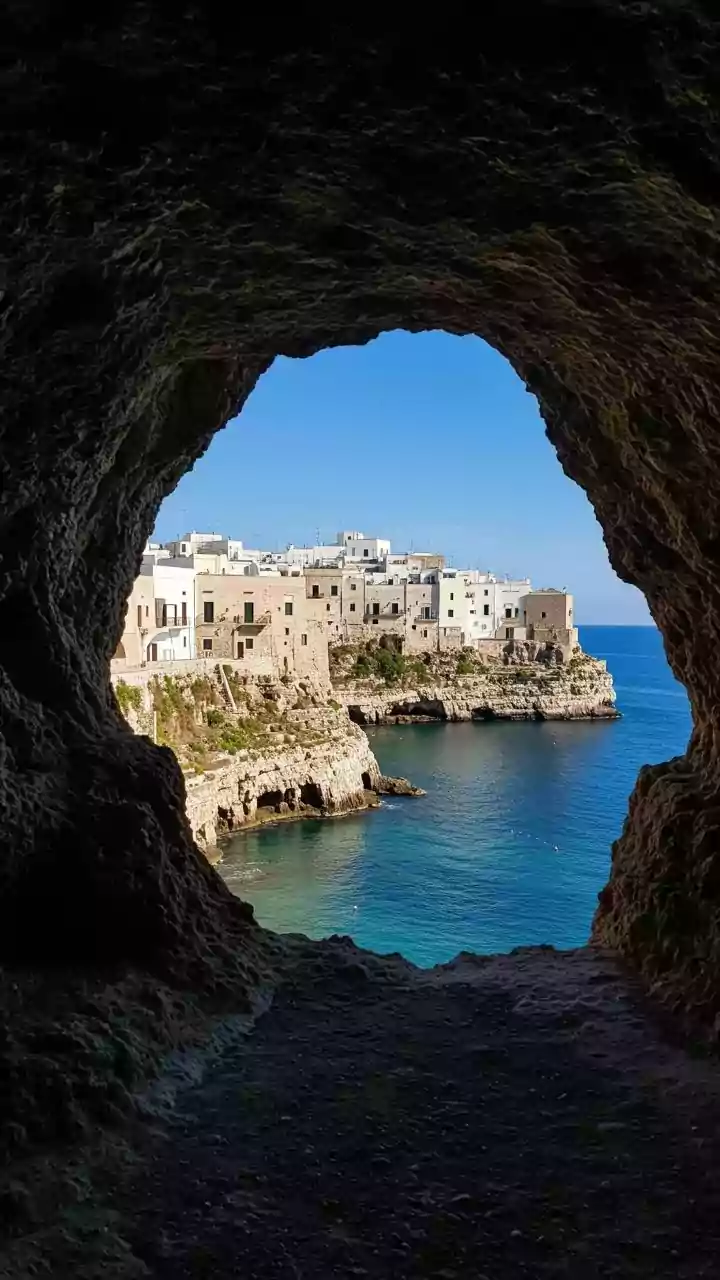Explore 10 Eco-Conscious Destinations for Sustainable Travel. From Costa Rica to Palau, discover how to travel responsibly
The world is waking up to the importance of responsible travel. No longer is it
enough to simply tick off destinations from a bucket list. We need to consider the impact our journeys have on the environment and local communities.
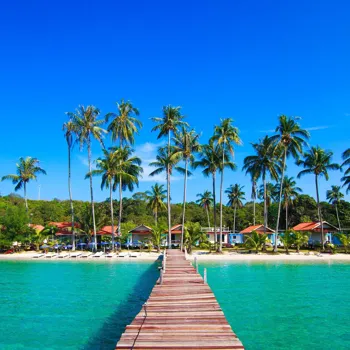
Sustainable travel, or eco-tourism, is all about minimizing negative impacts and maximizing positive contributions. It's about choosing destinations and activities that support conservation efforts, respect local cultures, and benefit the people who call these places home.
Luckily, there are amazing destinations across the globe that are leading the way in sustainable tourism practices. Forget the crowded beaches and over-developed resorts; it's time to explore places where your vacation dollars directly contribute to a healthier planet and happier residents.
This article will show ten incredible eco-conscious destinations that are perfect for your next adventure.
Costa Rica: A Pioneer in Eco-Tourism
Costa Rica is often hailed as the poster child for eco-tourism, and for good reason. For decades, this Central American nation has prioritized environmental protection and sustainable development. Over a quarter of its land is protected as national parks and reserves, teeming with biodiversity.
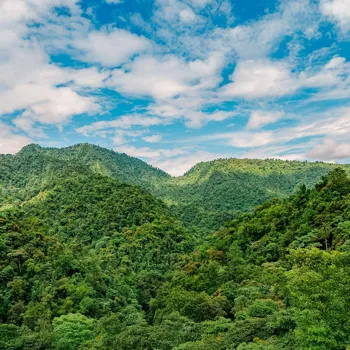
From lush rainforests and active volcanoes to stunning coastlines, Costa Rica offers a diverse range of landscapes to explore. Activities like zip-lining through the rainforest canopy, white-water rafting down pristine rivers, and hiking to witness exotic wildlife are incredibly popular.
What sets Costa Rica apart is its commitment to responsible tourism. Many hotels and tour operators are certified for their sustainability practices, such as using renewable energy, supporting local communities, and minimizing waste.
Travellers can easily find eco-lodges immersed in nature, where they can learn about conservation efforts and participate in activities like tree planting. Furthermore, the country has invested heavily in renewable energy sources, with nearly 100% of its electricity coming from clean sources!
This dedication is evident in every aspect of the travel experience, from the eco-friendly transportation options to the focus on supporting local businesses.
By choosing to visit Costa Rica, you are not only experiencing a breathtakingly beautiful country, but also contributing to the preservation of its natural wonders for future generations. It's a destination where adventure meets responsibility.
The country's strong focus on environmental education, offering guided tours led by knowledgeable local guides, helps visitors understand the importance of preserving the natural world.
Bhutan: Gross National Happiness First
Nestled in the Himalayas, Bhutan is a kingdom that measures its success not by Gross Domestic Product (GDP), but by Gross National Happiness (GNH). This unique philosophy permeates every aspect of Bhutanese life, including tourism. The country has a strict "high value, low impact" tourism policy.
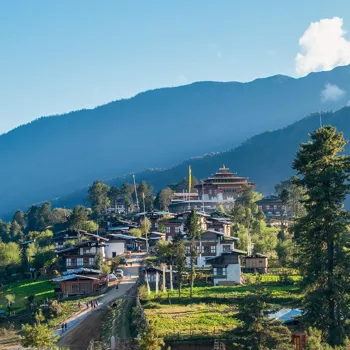
This means that visitors are required to pay a daily tariff, which helps fund sustainable development projects and protect Bhutan's pristine environment and rich culture. The focus isn't on mass tourism; it's about providing a meaningful and immersive experience.
Bhutan's majestic monasteries, vibrant festivals, and stunning mountain landscapes are truly awe-inspiring.
Hiking through the Himalayas, visiting ancient temples, and learning about Bhutanese Buddhism are just some of the unforgettable experiences that await you.
However, the real magic of Bhutan lies in its commitment to preserving its unique cultural identity and environmental heritage. Traditional architecture has been preserved in design. Tourism infrastructure is carefully integrated into the landscape.
The country has made significant strides in waste management and water conservation. By visiting Bhutan, you're supporting a country that places people and planet above profit. It’s a place where spiritual well being comes first. Bhutan offers an unparalleled sustainable travel experience.
The Bhutanese people are very welcoming and take pride in sharing their traditions and customs with visitors.
Slovenia: Europe's Green Capital
Often overlooked amongst its more famous European neighbours, Slovenia has quietly emerged as a leader in sustainable tourism. In 2016, Ljubljana, the capital city, was named the European Green Capital, recognizing its commitment to environmental sustainability.
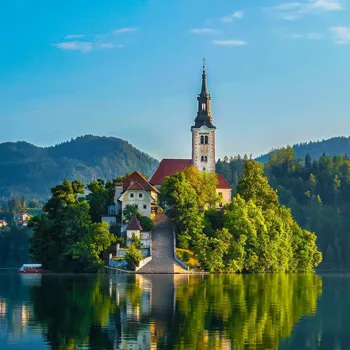
Slovenia's diverse landscape, including the Julian Alps, the Adriatic coast, and vast forests, makes it a paradise for outdoor enthusiasts. Hiking, cycling, kayaking, and skiing are popular activities. The country has invested heavily in sustainable transportation infrastructure.
This includes extensive cycling routes and efficient public transport. It is making it easy to explore without using a car.
Slovenia's commitment to sustainability extends beyond its capital city. Many farms welcome tourists for a unique type of cultural Immersion.
Eco-friendly practices are adopted in vineyards that produce organic wines. Accommodation options range from charming eco-lodges to family-run guesthouses committed to sustainable practices. Slovenia is proof that sustainable tourism can be both luxurious and responsible.
The country's pristine alpine lakes reflect its commitment to protecting natural resources. Slovenia's size makes it easy to explore different regions. The local cuisine emphasises fresh, seasonal ingredients sourced from nearby farms.
This supports local producers and allows tourists to enjoy the authentic tastes of Slovenia.
Norway: Fjords and Eco-Friendly Innovation
Norway, with its breathtaking fjords, glaciers, and Northern Lights, is a dream destination for nature lovers. However, this Scandinavian nation is about more than just stunning scenery. It's also a pioneer in sustainable practices.
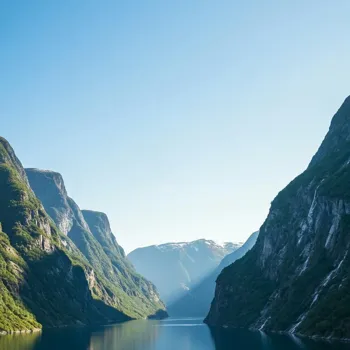
Norway has made huge investments on their eco-friendly transportation. Electric ferries navigate the fjords, reducing emissions and noise pollution. Many cities have extensive networks of bike lanes promoting cycling as a sustainable transportation option.
The country is committed to protecting its natural environment. They limit access to sensitive areas, and promote responsible tourism practices.
Eco-lodges and hotels across Norway are committed to sustainable practices.
Reducing their environmental impact, and showcasing the region's unique culture make it a sustainable stay. The focus on local and seasonal products in Norwegian cuisine further minimizes environmental impact. This provides visitors with a taste of authentic Norwegian culture.
Norway's dedication to renewable energy sources helps tourists travel with a clear conscience. Norway is a place where you can explore the extraordinary while minimizing your footprint. The country's rich maritime history is reflected in its sustainable fishing practices.
Tourists can learn more and contribute to marine conservation.
Palau: Protecting Paradise
Palau, an archipelago nation in Micronesia, is a true paradise. Pristine coral reefs, vibrant marine life, and idyllic beaches make it a diver's and nature lover's dream. However, Palau is also at the forefront of marine conservation.
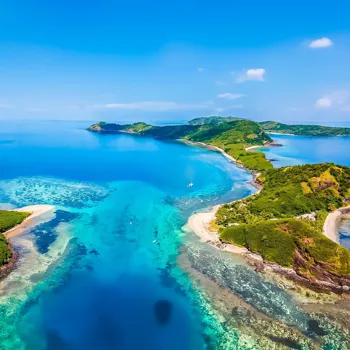
The government has created a National Marine Sanctuary protecting 80% of its waters from fishing and other extractive activities. This bold decision ensures the long-term health of Palau's marine ecosystem. Palau also has a "Palau Pledge." Every visitor must sign upon arrival.
The pledge is a commitment to respect and protect the country's natural environment and cultural heritage.
The country prioritizes sustainable tourism practices. They are promoting eco-friendly accommodations and responsible tour operators.
Limitations on the number of visitors ensures the delicate ecosystem is protected from damage. Palau is proving that tourism and conservation can work together. The local community are deeply involved in conservation efforts.
This creates economic opportunities while ensuring environmental sustainability. Visitors can participate in research programs which contribute to the understanding and protection of Palau's unique marine environment.
Palau's dedication to protecting its natural heritage makes it a model for other island nations.
The sustainable travel movement is not just a trend – it's a necessity. We all have a responsibility to protect the planet and respect the communities we visit.
By choosing eco-conscious destinations and activities, we can ensure that future generations will also have the opportunity to experience the beauty and wonders of our world.
AI Generated Content. Glance/InMobi shall have no liability for the content